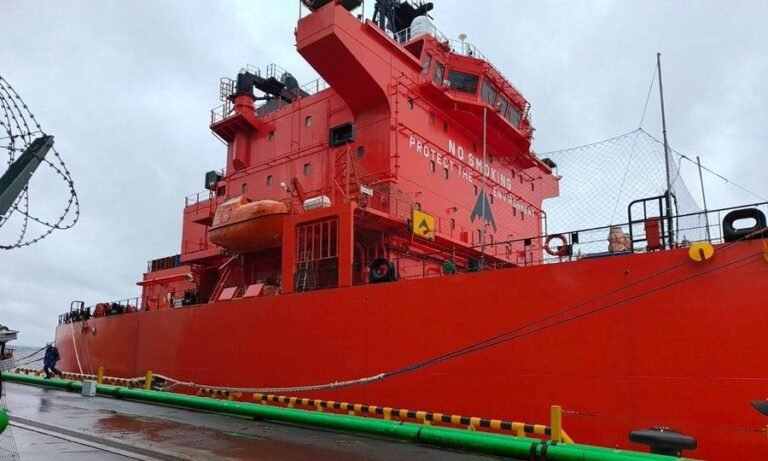Russia Halts Foreign Oil Tanker Loadings at Black Sea Ports
Recent reports from Reuters have revealed that Russia has implemented a sudden stop on foreign oil tanker loadings at its crucial Black Sea export terminals. This decision stems from a new port security decree that mandates Federal Security Service (FSB) clearance for all foreign vessels, a move that is expected to disrupt more than 2% of the global crude supply.
The halt, which was immediately put into effect following an executive order from President Vladimir Putin, is impacting operations at Novorossiisk and the Caspian Pipeline Consortium (CPC) terminal at Yuzhnaya Ozereevka. The CPC terminal is responsible for handling over 80% of Kazakhstan’s crude exports.
Prior to this decree, FSB clearance was only required for ships entering ports near Russian naval bases. However, under the new regulations, all ships en route from foreign ports must now obtain authorization from an official FSB representative in coordination with the port captain.
This crackdown comes in the wake of recent port incidents, including explosions, sabotage events, and drone attacks that have posed a threat to Russia’s oil infrastructure. While authorities attribute the restrictions to regulatory violations, many speculate that the timing aligns with increased domestic security measures and escalating Western sanctions targeting Russia’s energy sector.
There have been several unexplained explosions targeting tankers associated with Russian trade, with some occurring thousands of kilometers away from Russian shores. The most recent incident involved the ammonia tanker Eco Wizard owned by StealthGas, which experienced a blast at the Ust-Luga energy hub earlier this month. The explosion, described officially as a “minor leak,” led to the evacuation of the vessel and a temporary port closure. Inspection of the damage revealed significant hull damage, raising suspicions of an external attack.
Maritime security experts and Western intelligence services have raised concerns that Ukraine may be escalating a covert sabotage campaign to disrupt Russian oil exports.
These incidents at Ust-Luga follow similar events earlier in the year, including explosions on the Turkish-owned tanker Koala and the suezmax Vilamoura managed by TMS Tankers. These incidents are part of a growing trend of maritime explosions involving tankers linked to Russian trade, extending beyond the Baltic region.
In response to these escalating threats, Russia’s state-run port operator FSUE Rosmorport recently announced a significant tender to inspect the underwater sections of vessels at key Baltic Sea ports, highlighting the mounting concerns over maritime sabotage.

